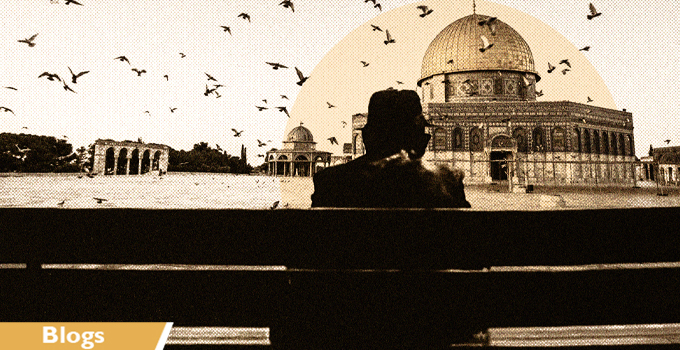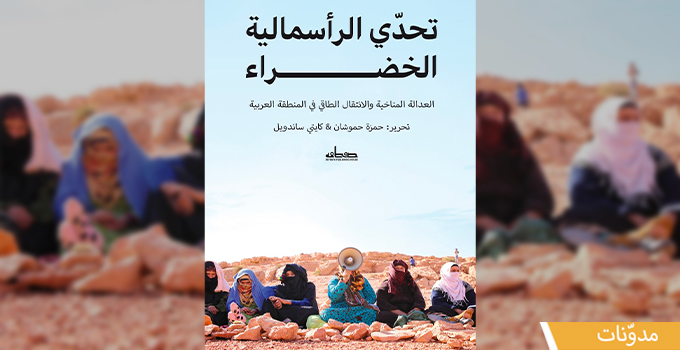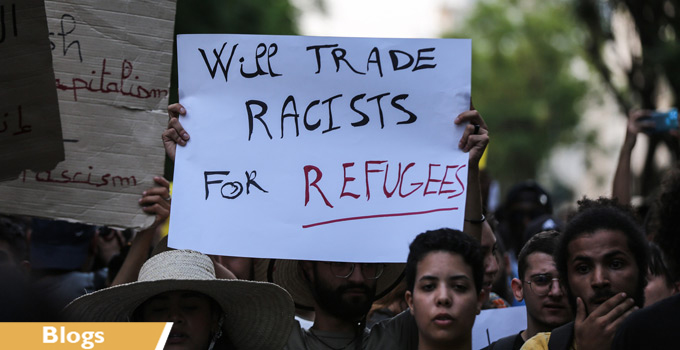
I folded my hands on top of each other, sandwiching them between my thighs. Car horns and the voice of my wife began fading away, as if I was submerging under water. All that was left was a distant ringing in my ears. But I didn’t faint, and soon I began to feel a burning pain. The closest public hospital is only 15 minutes away, but I think we were there in half that. The man guarding the gate between the emergency room waiting area and the doctors’ section automatically stepped aside as we passed, and in a few seconds I was in a room where a group of physicians were huddled around another patient. One nurse instinctively pulled away from the other patient to treat me, like we were all organs or cells in a single living entity healing itself, no words needed. He put my hands over a sink to clean and dress the wounds. Go to Kassab, he told us, the public hospital specializing in orthopedics.
Without noticing it, I joined the ranks of the uninsured in 2013, when I was no longer allowed to stay on my mother’s health insurance. I remember the year after attempting and failing to “shop” for insurance plans on the Obamacare marketplace. It felt like choosing which arcane torture instrument to buy for my executioner, and the brochures were in hieroglyphics. But by then I was already spending most of my time in Tunisia for my work as a journalist instead of my home in Washington, and in Tunisia healthcare is considered a public good.
Tunisians believe the uninsured are worthy of healing regardless of means. I know that not because Tunisians have debates about it or announce it in party platforms or discuss it over tea with family and friends. This belief is implicit, manifested in the institutions of the state and the state’s mechanisms. That is to say healthcare is depoliticized, receding and embedding into the very fabric of society. I wouldn’t learn the value of that—or what a heroic accomplishment it is for a small, middle-income country weathering imposed austerity to hold on to such a public system—until four tendons in my hands were severed.
On our thirty-minute drive to Kassab, laughing out of nervousness, I joked that the real tragedy of the situation was my wife’s cashmere sweater. I had noticed a mark of my blood on the inside lapel. “Cashmere tragedy,” she replied, would be a good name for a band. I was grateful—for her of course, in every way, but particularly that she had learned to drive only the year before.
Had I eaten in the last six hours? asked the on-duty doctor at the emergency room. He was a young man, bleary eyed, trying in vain to keep his small office from filling up with more than one patient at a time. Some, like myself, had already wounds cleaned, dressed and assessed in a neighboring room. A fat administrator smelling of cigarettes strutted in, cracked a grim smile and asked the staff “not too many hurt people tonight, eh?” The doctor and nurses kept their eyes down, pausing their work in deference to the administrator and his presence. He looked spiteful.
I told the doctor I had eaten recently. I would have to fast and come back the following morning for surgery, but not before I went to another room for the fitting of gypsum casts on both arms. They have materials in this hospital, and it’s clean, one friendly older couple said admiringly to us as we waited in line. Other hospitals don’t even have enough bandages, they said; this one is like a hospital in France. This was before the coronavirus pandemic, when alarm over Tunisia’s relatively low number of intensive care beds would prompt a curfew and military-enforced confinement measures.
Someone at the front desk asked where I was from when we checked out. It was a friendly question, not an accusing one. He wasn’t asking about my immigration status, or whether I was receiving the benefits of a health system paid for by Tunisians. It’s hard to imagine Tunisians gatekeeping public services like that. I didn’t have local insurance, and he gave us a discount – we paid only 20 dinars, about seven dollars. Triage determined by need, not by wealth or nationality, I thought.
As I waited for surgery the next day, a small but animated man named Slimane guided me to the in-patient ward. While the system is a blessing, scarcity has taken its toll. In 2013, Tunisia signed a loan deal with the IMF which came with conditions including freezing public sector hiring and devaluing the currency. The first exacerbated understaffing at hospitals, while the second cut real spending on health from 782 million USD in 2013 to 623 million USD in 2018. Doctors stretched thin are wary of patients, avoiding unnecessary contact and communication lest it devolve into violence, which it does in rare cases. Rooms and mattresses are bare, and patients’ families pack suitcases of linens, clothes, food, basic toiletries for in-patients; sharing the burden of socialized medicine can blur the lines between the state and the family.
But Slimane was helpful, a sort of fixer who could find us doctors recovering from patients on their breaks or secure an administrative permit for my wife to stay overnight and care for me as both hands would later be in casts again. He never asked for it but he seemed to want a tip, which we gave him. Moral purists might imagine that rendered his kindness false, but that’s according to an aristocratic ethics. Relative wealth is not deserved or natural, and possessors of it have no birthright to share or withhold based on moral means testing. Wealth inequality is a social ill, and failing to heal it is a sin.
Slimane himself had his hands wounded during the 2011 uprising, and he was treated at Kassab before getting a job there afterwards. At the time, more than 300 Tunisians were killed when security forces fired live bullets on crowds first demanding “work, freedom, national dignity,” later the fall of the system. Many more were wounded. In some ways, the crowds won in 2011, forcing out the former president, disbanding the single political party that had ruled for more than half a century, and dismantling some of the worst aspects of the authoritarian police state. The winners then demanded reparations from the state not only for dead sons, lost legs, and broken hands but for decades of repression and economic violence. Some were given compensation, others jobs in the public sector. Slimane was one who got a job.
World Bank documents treat people like Slimane as a problem, one of the arbitrary hires that expanded the public sector—what many American officials and pundits have repeatedly characterized as a “bloated” public sector. According to a 2015 Bank study, “during the post-Revolution period…ad-hoc changes allowed the State to act as employer of last resort, significantly increasing direct recruitment, by-passing competitive exams, and regularizing temporary workers.” The paper concludes that this type of hiring exacerbated the problem of poor “performance,” not living up to a neoliberal ideal of state services.
But Slimane’s contribution to the hospital was not in his medical or administrative training. He was there as a representative of the revolution, himself a victim of the state and its callousness. His recruitment is a small but important concession in a continuing fight against the state’s usual technicians: officials, bureaucrats, and even doctors who are largely Francophone, patronizing modernizers. For them, the state and its mechanisms must save the uneducated masses from religion, tradition, and themselves. In contrast, Slimane puts himself on the side of the patients, slightly balancing out a system that retains its legacy of inequalities. He was the kindest person we met, and without him we would have been unable to bear—or extract attention from—the aloof “skilled” workers, some of whom were condescending.
Surgery was required to repair my severed tendons. Two hours into the procedure, the local anesthetic in my left arm was still fully effective for my hand. But around my shoulder, it began to wear off slightly, and the tourniquettied there savagely introduced itself to my nerve endings. Speakers in the room played funky, electronic, lounge music, which I hummed to weakly. Later that night, my wife managed to hunt down the surgeon—who was still on-call as the chief officer for hand-related emergencies—and discovered all had gone well.
When we checked out, the total out of pocket expense for surgery, 3-days of in-patient monitoring, and all associated drug costs including a tetanus vaccine amounted to 400 dinars, or about $140 US, about a month’s salary at local minimum wage. When my wife went to pay, she waited as a fellow in-patient, a young boxer from the poor neighborhood of Hay Ettadhamen, told staff he couldn’t afford the 180-dinar bill. He asked them if they expected him to steal to pay his bill. They offered to keep a copy of his ID and he could pay in installments. My wife followed him and quietly gave him the money. When I later asked what inspired her generosity, she explained that she had felt bad for him and happy at my recovery.
Doctors in the United States assured me the same procedure I underwent would have cost between $10,000 and $40,000 out of pocket. One person with insurance who had similar surgery in 2019 on only one flexor tendon (rather than my four), told his YouTube audience that he spent about $5000 even with insurance.
Drug prices are staggeringly cheap in Tunisia compared to in the United States, regulated in part by the state’s Central Pharmacy. Most antibiotic treatments will set a person without insurance back a few dollars at most—still beyond the pay of many who still need social assistance to cover expenses. But shortages have occurred in recent years as the Central Pharmacy goes into debt, unable to cover its costs as the prices of imported medicines increases as the dinar’s value plummets.
Apart from feeling the pinch of IMF conditions on the convertibility of the dinar, drug prices are likely to rise again in the event of a new trade deal with the European Union. The deal under negotiation, the Deep and Comprehensive Free Trade Agreement, so far includes stipulations on extending drug patents and protecting intellectual property in ways that will delay the availability of cheap generics. The word “neocolonialism” may be blunt, but it has the benefit of concisely describing the power relations at play when a country of about 12 million people in economic crisis “negotiates” a deal with its main trading partner and a sizeable creditor: the 27-nation, largest trading block in the world, representing 500 million people.
While my entrance to the emergency room and the operating room had been incredibly fast, each follow up visit would see me wait progressively longer. It remains a mystery how, despite the hundreds of people waiting, a heavy reliance on paper records, clear signs of vast understaffing, and little explicit communication, the hospital system was able to accurately determine the urgency of my care needs—and presumably those of thousands of others—at each stage of my healing. At the three-week mark, one nurse removed my casts. At the bottom of each finger, tightly wound cotton separating each finger from the others had squeezed the skin nearly to the bone, while the tips had inflated with swelling. Dried blood and brown disinfectant remained as stains.
Before I had time to come to terms with my zombie hand, another nurse was removing the stitches. He was clearly dedicated to healing others. We sympathized with him and his work load, the inevitable stress and tension of hundreds of sick people standing in halls. Some of his colleagues I had recognized from late shifts, early shifts, seemingly forever shifts since their faces always reappeared. My wife and I told him how grateful we were for the public hospital, and he began telling us how some doctors were ruining it, purposefully making some public services slower so that patients would see them in their private clinics where they would make much more money.
We nodded. But we also knew doctors who, after studying for about a decade in a highly competitive system, were depressed to find they could no longer afford the promises of a middle class life: a house of their own, a car, vacations. Austerity has hit them too in recent years. In 2017, 45 percent of new doctors—most of them young—left Tunisia for opportunities elsewhere. In 2013, the same number had been only 6 percent. Many of Tunisia’s talented doctors and engineers—trained at public expense through public education—are working in France and Germany: a poor state subsidizing wealthy ones with human capital.
I have returned to Kassab many times since for physical therapy. Patients waiting for treatment are constantly murmuring wishes of recovery and healing to each other, invoking the divine. The therapists have some materials and equipment to help muscles and tendons and bones work together like they are supposed to. Sometimes they make do with stand-ins—like the colored toy cones I have stacked and twisted together. Other tools look as if they broke down long ago. Perhaps the purchasers thought Tunisia was rich and getting richer, that it would soon catch up to its former colonizers. But no country is poor that cares for its wounded, even when they’re poor, even in a time of austerity.





iThere are no comments
Add yours